Carlos S. Alvarado, PhD, Research Fellow, Parapsychology Foundation
The live part of the Parapsychology MOOC I mentioned before (click here) ended on February 14. This consisted of over 25 presentations by different lecturers, something that had not been done before at this scale. The MOOC went from January 5 to February 14, and was organized mainly by Dr. Nancy L. Zingrone, with some assistance by myself.
It was a success. Not only did we have many registrants (almost 850, with people still registering everyday), but we obtained the cooperation of many individuals engaged in parapsychological research. A few of the over 25 presentations were:
Clinical and Counseling Aspects of Psychic Phenomena, Dr. Alejandro Parra
The Multiphasic Model of Precognition, Dr. Edwin C. May
The Role of Creativity in Psi Research, Dr. Kathy Dalton
Presentiment: An Anomalous Anticipation of Random Future Events, Dr. Thomas Rabeyron
Supernormal: Science, Yoga and Psi, Dr. Dean Radin
Will an Evolutionary Perspective Help Us Understand How Extrasensory Perception Works?, Dr. Richard S. Broughton
Implications of Mediumship for the Mind-Brain Relationship, Dr. Alexander Moreira-Almeida
Beyond the Brain? Exploring the Neuropsychological Correlates of ESP, Bryan Williams
Authors of the Impossible: What the Humanities Can Offer Parapsychology, Dr. Jeffrey Kripal
Psi-Related Experiences in Daily Life and Their Relationship to Beliefs, Attitudes and Subjective Well-Being: A Brazilian Survey, Dr. Fátima Regina Machado
The Challenge of Macro-PK, Dr. Stephen E. Braude
Anomalous Experience and Psychopathology, Dr. Etzel Cardeña
Different from most materials and courses about parapsychology available in the Web, our lectures were intended to represent high level discussions of the topic. To guarantee this we selected most of our lecturers following two criteria: they must have conducted research on the area they spoke about, and have completed their educations to the level of doctoral degrees. Only two of our speakers, both exceptional people, had less formal education than that.
While many lectures were quite technical they were all well received, showing that at least part the general public is eager and interested in obtaining high quality and technical information about parapsychology. In fact one of the most common compliments we got during the course was the happy surprise at the number of working scientists and university professors doing research on the phenomena in the field.
However, there was also less technical material. In addition to a general introduction to parapsychology that I presented, including a little about terminology, phenomena, history, and methodology, we had several posters consisting of slides about several topics. With one exception they were about non-technical topics, and one of them presented a general bibliography of books and articles. The titles are listed below:
Parapsychology: A Selected Bibliography in English
Animal Magnetism and Psychic Phenomena: The Neo-Mesmeric Movement, by Dr. Carlos S. Alvarado
Robert Van de Castle: Dream Researcher and Parapsychologist, by Dr. Carlos S. Alvarado
Pulse Rates as a Physiological Index of ESP: The Nineteenth-Century Explorations of John E. Purdon, by Dr. Carlos S. Alvarado
Charles Honorton and Parapsychology, by Dr. Nancy L. Zingrone
The Parapsychology Foundation: Yesterday and Today, by Lisette Coly
The Mediumship of Leonora E. Piper, by Dr. Phil Morse
Current Trends in Parapsychology in Italy, by Dr. Massimo Biondi
Psi and Death of the Person-Target: An Experiment with Highly Emotional Iconic Representations, by Dr. Alejandro Parra and Dr. Juan Carlos Argibay
Exceptional Human Experiences (ExE) as a Counseling and Research Topic, by Eberhard Bauer and Dr. Wolfgang Fach
Evidence-Based Dualism and Transpersonal Psychology, by Charles T. Tart
Understanding Ghost Hunting, by Dr. Leo Ruickbie
The Academic Consolidation of Anomalistic Psychology in Brazil, by Vanessa Corredato and Dr. Wellington Zangari
In addition to the variety of topics discussed, I also enjoyed the international aspect of the course. This not only was the case with those who registered, but also from the lecturers. Our presenters who gave their presentations live via the social media teaching platform on WizIQ.com were from Argentina, Brazil, Canada, France, India, Sweden, the UK, and the United States. In the posters there were two additional countries, Italy and Germany.
We hope to continue to organize similar courses in the near future, as well as shorter ones about specific topics. One we are putting together now is about out-of-body experiences. The same goes for online conferences about specific topics, such as the one about parapsychology and psychology.
When we undertook the project we weren’t sure how we were going to manage as neither of us have full-time jobs, but donations from colleagues and contributors, Natasha and Jonathan Chisdes of www.chizfilm.net and Dr. Phil Morse of www.compellingevidencefortheafterlife.com helped immensely. Even more so was the contribution of our partner in the course, Lisette Coly, President of the Parapsychology Foundation. She attended almost every live class, and is issuing the certificates of completion for the learners who earned them, and who let us put the course before projects she was paying us to do for the Foundation.
We were also helped in the day-to-day tasks of the course by Natasha Chisdes, and Nancy’s colleagues from her teaching online network, Tom Hodgers, Nives Torresi, and Halina Ostancowiz-Bazan, two of our speakers, Cherylee Black and Bryan Williams, and many learners who stepped up to the plate with links, articles, ideas, and general helpfulness, not to mention their grass roots marketing among friends and colleagues.
Perhaps the most important group of volunteers for the course though were our lecturers. Our thanks to all the lecturers for their cooperation. With the exception of one person who refused the invitation because we could not pay for participation given that the course was and still is free, everyone else was delighted to make a contribution to field on a voluntary basis. This shows the commitment and generosity of most people in parapsychology. Far from being stuffy scientists and scholars they are well aware of the importance of spreading knowledge about the field. Without the speakers the course would not have been possible.
All the presentations will be available for free for the next year. Just go to http://www.wiziq.com, create a free account, click on the link below, look to the left and click on course schedule, then browse for the lectures you want to see.

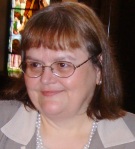


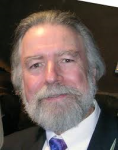
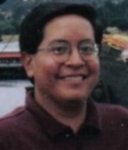
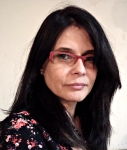

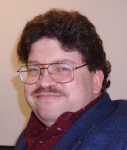
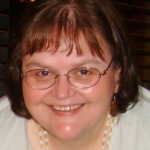
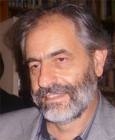
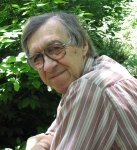
Nancy/Carlos: This was an excellent idea. In these days of an increasingly advanced technology, people are getting used to an instant access and feedback exchange of ideas. However, this was more than just an “at home classroom.” With the timely release of information, this was equivalent to an extended “in home global conference” on parapsychology that provided a contemporary forum of information exchange. Thumbs up. I look forward to many more ventures such as this. I suppose the only thing I would ask is simply this: “If we wanted to personally connect with any of the speakers, how could we locate the pertinent email addresses in order to personally exchange ideas?”
Glad you liked the MOOC.
To contact the speakers: Most emails appear at the end or at the beginning of the slides, or can be obtained looking for the speakers in your search engine. But you can also write to me privately.
Thanks for the comment.
Thanks Carlos, Nancy & all the speakers, this course blew me away it was amazing.
I am still going through the information & will be for a while. I am in Australia & look forward to more of the same.
Keep up the good work.
Pete Clifford 🙂
Thanks Pete. Hope you enjoy the rest of the presentations.